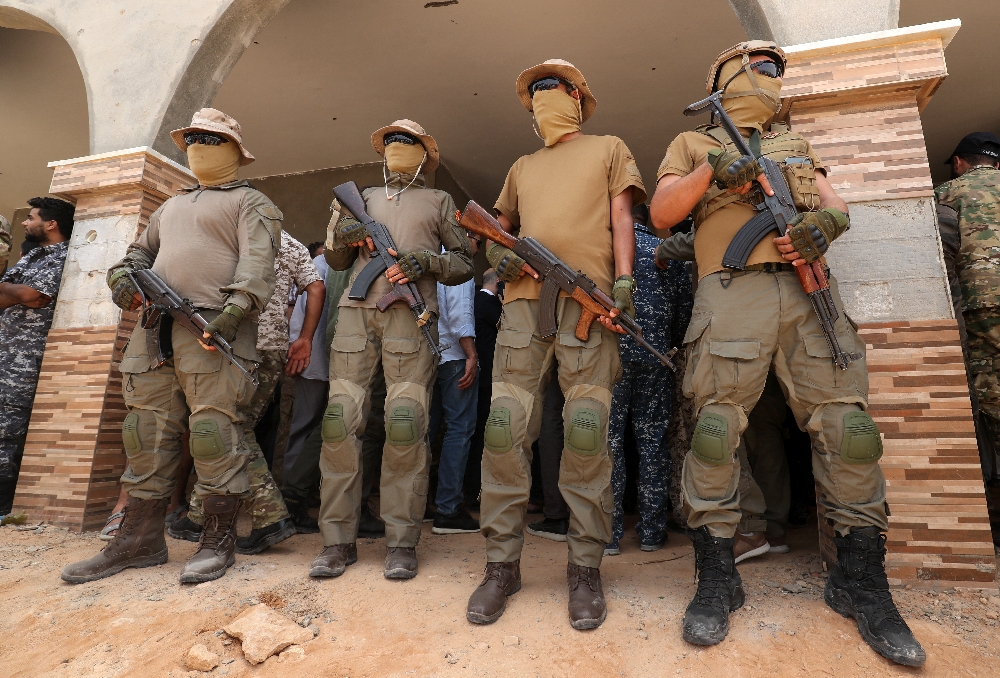World powers gathered on Wednesday in Berlin to seek lasting peace in Libya by ensuring the conflict-wracked North African country stays firmly on the path towards general elections on December 24.
Prime Minister Abdul Hamid Dbeibah of Libya’s interim government is joining US Secretary of State Antony Blinken as well as the foreign ministers of France, Turkey and Egypt at the UN-sponsored talks.
Russia’s Sergei Lavrov will be absent, but deputy foreign minister Sergey Vershinin will attend in his place.
The efforts to end a decade-long spiral of violence in Libya are the second round held in Berlin, after the first attended by the presidents of Turkey, Russia and France in January 2020, before the pandemic.
Before heading into talks, Blinken renewed demands that all foreign forces leave the war-battered nation.
Stabilisation of the country
A ceasefire agreement from October last year “has to be fully implemented including by withdrawing all foreign forces”, Blinken told reporters ahead of the opening of the conference.
German Foreign Minister Heiko Maas, who is hosting the visit, underlined that “for the further stabilisation of the country, it is crucial that elections take place as planned and that foreign fighters and mercenaries really do leave Libya.”
Participants at the 2020 conference had pledged to end to international meddling and for foreign militants or troops to withdraw.
But neither Moscow nor Ankara, both of which have significant forces in the country, have met their promise.
The United Nations has estimated that 20 000 foreign fighters and mercenaries are still on Libya’s territory. And that presence is seen as a threat to the UN-backed transition leading to the elections.
No one’s interest
The oil-rich country descended into chaos after dictator Moamer Kadhafi was toppled and killed in a 2011 Nato-backed uprising, resulting in multiple forces vying for power.
In recent years Libya has been split between two rival administrations backed by foreign forces and countless militias.
In October, after Turkey-backed forces of the Government of National Accord (GNA) based in Tripoli routed those of eastern military strongman Khalifa Haftar, the two camps agreed a ceasefire in Geneva.
The security situation in Libya has been slowly improving since.
However, the UN recently warned that progress has stalled, notably on a key requisite of the polls – the pullout of all foreign soldiers.
Western leaders have repeatedly called on the foreign fighters to depart.
Bilateral agreement
But Russian mercenaries supporting Haftar’s side in the east of the country are still in place.
Turkey meanwhile has troops in Tripoli, which it argues were sent under a bilateral agreement with the government, implying that they are not affected by a request for foreign troops to leave.
But any withdrawal is also a delicate balancing act, said Germany’s Maas.
“Foreign forces must leave the country in a gradual and uniform manner, so that there won’t be a sudden military imbalance that could be used by one side for a sudden offensive,” Maas told Die Welt newspaper.
A diplomat, speaking on condition of anonymity, stressed the sensitivity of the situation, saying solutions could not be found overnight.
But he also voiced cautious optimism that some progress could be made on Wednesday, because it was in no one’s interest for conflict to break out again.
Jalel Harchaoui, Global Initiative senior fellow and an expert on Libya, also believed the talks could bring tangible help on the upcoming elections.
“Somebody could come up with a good idea of agreeing on a constitutional basis in July and be on course for elections in December,” he said, referring to a key requisite for the polls.
“I think there’s a good chance (for elections by year’s end) and the Berlin process could help.”
Source: AFP


